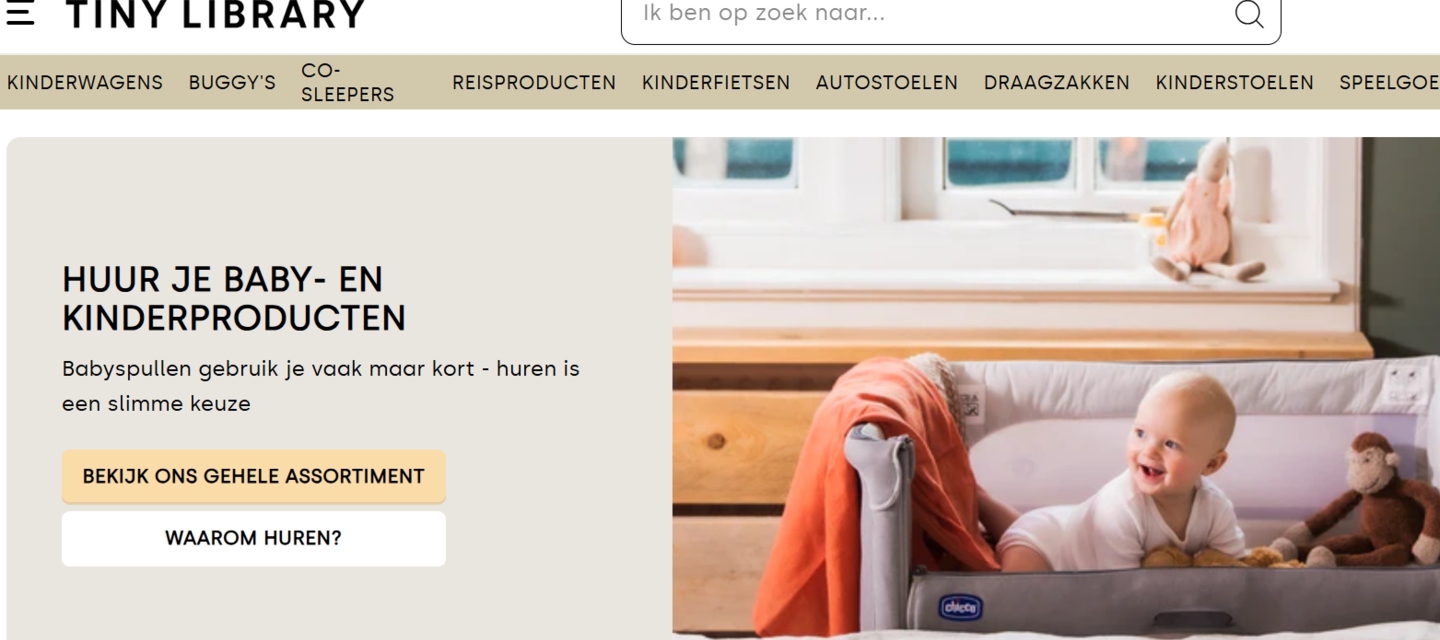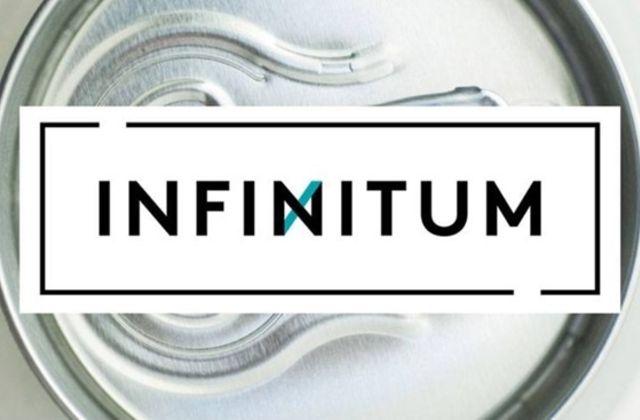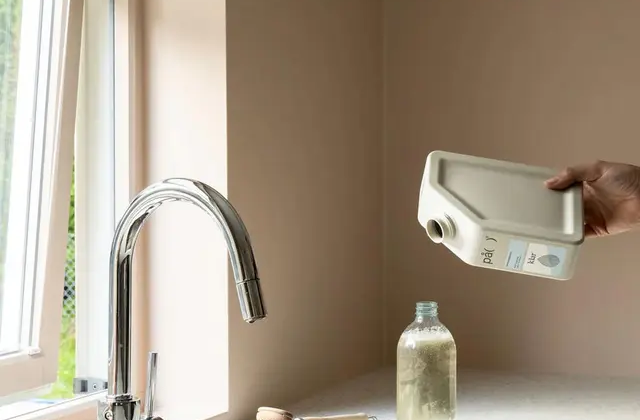What is it? Tiny Library offers a rental service for children’s items, such as strollers, beds or car seats. Customers can also take over rented products after the minimum rental period, resell products they no longer need and purchase secondhand items. The business operates online and services households in the Netherlands and Belgium.
Why is this important? Items such as strollers and car seats are only used for a short amount of time before the child might outgrow them and need a new accessory. Through this consumption, Tiny Library estimates that each child produces greenhouse gas emissions of around 800 ton CO2 (Tiny Library, 2025c). As an example, the business states that one stroller has a carbon footprint of 321 kg CO2 (Tiny Library, 2025c). By renting rather than buying baby and children’s products, items can be used by several families, extending their life and avoiding the need for more items to be produced. Tiny Library estimates that items can be used by around 6-10 children in its service instead of one (Tiny Library, 2025d), reducing the need to produce new items and thereby avoiding greenhouse gas emissions and resource use.
Main resource strategy: Narrowing the loop by enabling higher use rates of items through a rental service, potentially avoiding the need for further products to be made.
Other resource strategies: Slowing the loop by keeping items in use for a long time, maintaining and repairing between users and also offering a resale services for used products after they can no longer be rented.
Business model aspects:
- Value Proposition: Tiny Library offers customers a convenient alternative to buying new items or sourcing products on second-hand marketplaces. The company advertises its offer as flexible, space-saving and affordable. It estimates that customers save up to 70% when renting an item rather than buying new (Tiny Library, 2025e). Products are only provided to customers (and need to be stored) for as long as they are actually needed. Furthermore, the business promotes the sustainability of its offer, reducing resource use and greenhouse gas emissions through increasing the use rate of products and keeping them in use for longer with repair and maintenance (Tiny Library, 2025e).
- Value Creation & Delivery: Tiny Library offers rental agreements with different periods, with items becoming cheaper per month if the contract is longer. The customers can order their items for rent online, these are then delivered to the specified address and can be returned to Tiny Library when they are no longer needed and the rental contract is over (Tiny Library, 2025b). Once returned, Tiny Library cleans the items and repairs or maintains them as needed before renting them out to the next customer. If customers decide that they want to buy an item that they have been renting, they can do so, and the business offers a buy back guarantee for items that came from them (Tiny Library, 2025e). In addition to its rental offer, Tiny Library also sells pre-loved items that they can no longer offer for rent (e.g., refurbished or with imperfections) (Tiny Library, 2025a).
- Value Capture: Revenue is generated through sales of preloved and some new items and rental contracts on product-as-a-service. Monthly rental rates are cheaper with a longer contract period; so that the cheapest stroller available (as of September 2025) costs €99.95 per month for a contract of one month but €23.95 a month for a contract of 2 years.
Strategies for degrowth/ sufficiency (based on sufficiency strategies from Niessen & Bocken, 2021):
- Green alternative: Some of the products offered by Tiny Library (e.g., Bugaboo strollers) are intentionally built with circularity in mind, enabling long use-times and repair.
- No Ownership (+ price incentive): Tiny Library offers product use rather than ownership through rental offers. This is linked to a price incentive, as longer use is encouraged with long-term contracts having a cheaper monthly rate.
- Reuse: Tiny Library resells pre-loved items, such as refurbished or slightly damaged products. Through this resale, they can give the products another life.
Sustainability outcomes: Tiny Library estimates that it can save around 90% of water through refurbishment compared to buying new (Tiny Library, 2025c), while at the same time saving for instance 962 kg CO2 emissions through renting one stroller out to four families (Tiny Library, 22.03.2022). Based on its estimations of water and CO2 emissions saved, Tiny Library has set itself the goal of saving 900,000kg of products and saving 15.75 million kg CO2 within 5 years (Tiny Library, 2025c).
Sources:
Tiny Library (2025d). Over ons. Accessed 17 September 2025 at: https://tinylibrary.nl/pages/over-ons
***
About project Circular X
Project Circular X is about ‘Experimentation with Circular Service Business Models’. It is an ambitious research project funded by the European Research Council (ERC) which supports top researchers from anywhere in the world. Project CIRCULAR X runs from 2020-2027. The project is led by Principal Investigator (PI) Prof Dr Nancy Bocken, who is joined by a multidisciplinary team of researchers at Maastricht Sustainability Institute (MSI), Maastricht School of Business and Economics, Maastricht University. The project cooperates with businesses who want to innovate towards the circular economy.
Project Circular X addresses a new and urgent issue: experimentation with circular service business models (CSBMs). Examples of such new business models include companies shifting from selling products to selling services and introducing lifelong warrantees to extend product lifetimes. However, CSBMs are far from mainstream and research focused on experimentation is little understood. The research aims to conduct interdisciplinary research with 4 objectives:
- Advancing understanding of CSBMs; their emergence and impacts
- Advancing knowledge on CSBM experimentation
- Developing CSBM experimentation tools
- Designing and deploying CSBM experimentation labs
Funding source
This project has received funding from the European Research Council (ERC) under the European Union’s Horizon 2020 research and innovation programme, grant agreement No. 850159.
Using this information
When you cite this publication, please use the following source:
Circular X. (2025). Case study: Tiny Library - Supporting parents through a rental offer. Accessed from www.circularx.eu



